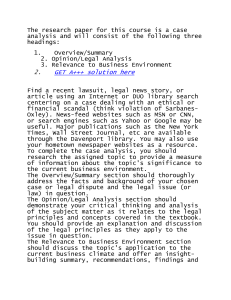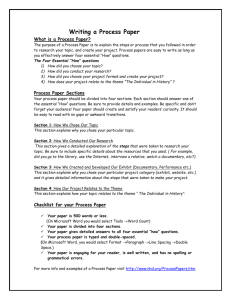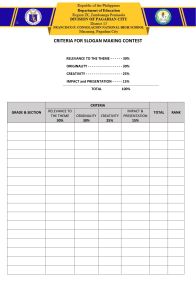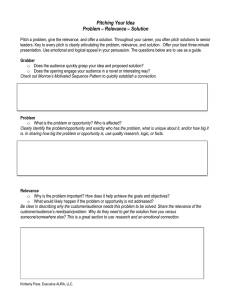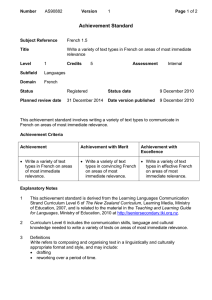found here
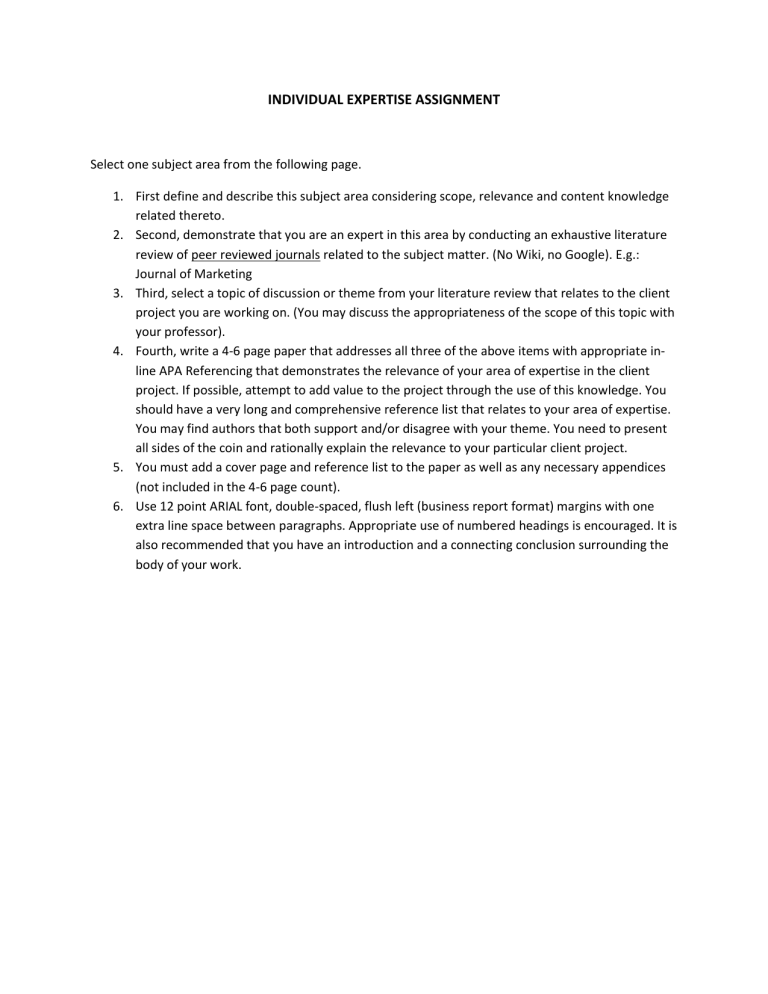
INDIVIDUAL EXPERTISE ASSIGNMENT
Select one subject area from the following page.
1.
First define and describe this subject area considering scope, relevance and content knowledge related thereto.
2.
Second, demonstrate that you are an expert in this area by conducting an exhaustive literature review of peer reviewed journals related to the subject matter. (No Wiki, no Google). E.g.:
Journal of Marketing
3.
Third, select a topic of discussion or theme from your literature review that relates to the client project you are working on. (You may discuss the appropriateness of the scope of this topic with your professor).
4.
Fourth, write a 4-6 page paper that addresses all three of the above items with appropriate inline APA Referencing that demonstrates the relevance of your area of expertise in the client project. If possible, attempt to add value to the project through the use of this knowledge. You should have a very long and comprehensive reference list that relates to your area of expertise.
You may find authors that both support and/or disagree with your theme. You need to present all sides of the coin and rationally explain the relevance to your particular client project.
5.
You must add a cover page and reference list to the paper as well as any necessary appendices
(not included in the 4-6 page count).
6.
Use 12 point ARIAL font, double-spaced, flush left (business report format) margins with one extra line space between paragraphs. Appropriate use of numbered headings is encouraged. It is also recommended that you have an introduction and a connecting conclusion surrounding the body of your work.
AREAS OF EXPERTISE TO CONSIDER:
Building corporate synergies when aligning market strategy
Building leverage into the business model
Compare and contrast competitive strategies for Start-Ups versus Multi-Decade
Corporations.
Corporate Branding Strategy – When Does a Strong Corporate Brand Make Sense?
Corporate Growth Strategies – by developing New Products for Current Customers
Corporate Growth Strategies – by diversifying
Corporate Growth Strategies – by Increasing Penetration of Current Product-Markets
Corporate Growth Strategies – by selling existing products to new segments or countries
Differentiation strategies
How and when should Strategic Business Units (SBUs) be designed?
Implementation and Control of Marketing Strategy
Macro Trend Analysis
Market conditions that lead to Bankruptcy – How to know when to stop and sell?
Market exit strategies
Market Leaders vs. Market Followers
Market Opportunity Analysis
Market-Oriented Management
Mass-Market Strategy
Measuring and delivering market performance
Measuring Market Opportunities: Forecasting
Niche-Market Strategy
Positioning Strategies
Product exit strategies
Rate of Diffusion of Innovations
Strategies for declining markets
Strategies for mature markets
Sustaining competitive advantage over the product life cycle
Using Customer Equity to Estimate the Value of Alternative Marketing Actions

